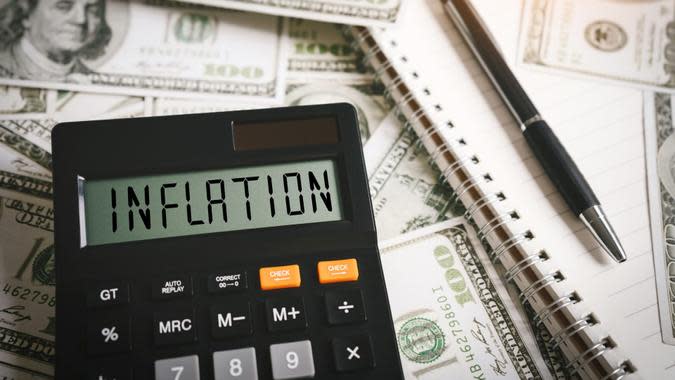6 Ways To Plan Ahead for a Luxurious Retirement

Do you feel prepared for retirement? According to a recent GOBankingRates survey, over 66% of American adults are worried they'll run out of money after they retire. Almost 47% are concerned Social Security will be cut or end completely, and another 21% are worried they won't be able to find a part-time job for extra income.
Retirement at Any Age: Get Top Retirement Tips for Every Stage of Life
Learn More: 7 Surprisingly Easy Ways To Reach Your Retirement Goals
With today's rising inflation and economic unrest, is planning for a luxurious retirement still possible? Financial experts say yes, it is -- if you diligently follow certain steps.

Set Your Goals Ahead of Time
What does a luxurious retirement look like to you? For some, it might mean traveling to London for two weeks and staying at a five-star hotel once or twice a year. For others, it might look like living in a more expensive area so they can be close to their grandkids.
"Get a very clear picture of how you want to enjoy your time when you enter retirement," said David Edmisten, a certified financial planner and founder of Next Phase Financial Planning. "Add up how much this amazing lifestyle will cost. You can create an annual spending amount and divide that up by 12 to get your estimated monthly costs in retirement."
Take Our Poll: Do You Think You Will Be Able To Retire at Age 65?

Decide How Much You Need To Save Each Month
Chances are high that Social Security and pensions won't cover all your financial needs in retirement, so it's important to save on your own, too. Whether you want to spend $10,000 or $100,000 a month in retirement, a financial advisor can help you determine how much you need to save by taking into account your rate of return, time, taxes and inflation.
Generally speaking, if you plan to retire at 65, Damian Rothermel -- certified financial planner at Rothermel Financial Services -- recommends putting at least 10% of your income toward your workplace retirement account. Consider putting even more if your employer doesn't offer matching or you're self-employed.
If your idea of a luxurious retirement is more lavish, Edmisten recommends saving upward of 20% to 30% of your income.

Start Investing in Tax-Advantaged Retirement Accounts
The earlier you start contributing to a retirement account, the better.
"Preparing for retirement is about maximizing and stretching your money through tax-advantaged retirement accounts, taking advantage of your employer's 401(k) match, and allocating your money wisely," said Danielle Miura, certified financial planner and founder of Spark Financials.
Miura also recommends contributing to a health savings account (HSA). This type of high-deductible plan allows you to save money before taxes to pay for eligible health expenses. Later on in retirement, you can also use the funds for general living expenses.

Don't Forget About Inflation
According to the aforementioned GOBankingRates survey, rising inflation is forcing more than 20% of American adults to delay their retirement plans, almost 30% to try to save more, and another 10% to change their investment strategies.
Inflation can have a two-fold impact on retirement, Edmisten said. The higher the rate of inflation, the more you can expect to pay for living expenses and services in retirement.
"Higher inflation rates can also reduce the net return on investments," he said. "That means assets may not grow as much as anticipated."
To combat the effects of rising inflation, consider contributing more to growth-oriented assets and fixed-income investments with adjustable rates.

Remember To Account For Medical Expenses
Thanks to inflation, you can expect the cost of medical expenses to rise by the time your retire. Unexpectedly high medical bills often prevent people from retiring on their own terms, said Ari Parker, attorney and lead licensed Medicare advisor at Chapter.
He advises people to research health plans ahead of time to see what would best fit their budget and needs.
"Those who plan ahead can expect to save hundreds of dollars a year, especially when they have the doctors they want to see, the prescriptions they need to take, and their lifestyle choices in network," he said. "The savings people find on recurring expenses while avoiding unexpected medical bills can be a big contributor toward their discretionary savings account."

Build Up a Cash Reserve Before Retiring
In addition to your retirement investments, Edmisten recommends saving 12 to 24 months' worth of living expenses in a cash account before retiring.
"This will allow you to have all the funds needed to begin your amazing retirement journey without having to worry about the stock market or other factors throwing your plans off course," he said.
More From GOBankingRates
This article originally appeared on GOBankingRates.com: 6 Ways To Plan Ahead for a Luxurious Retirement
